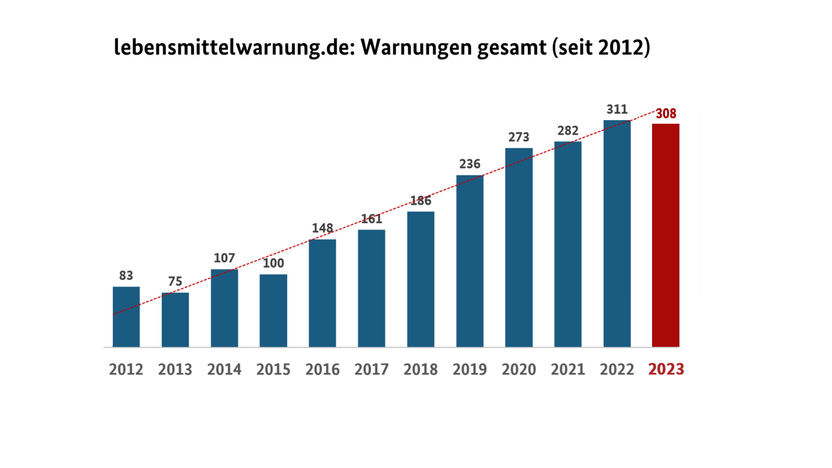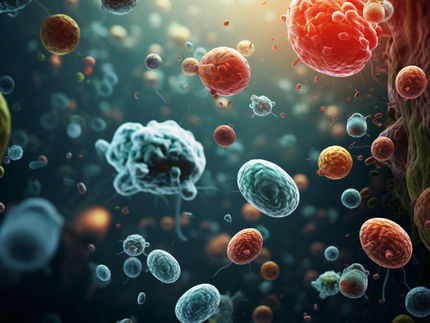Salmonella is a frequent cause of food recalls
Federal Office publishes annual statistics for 2023 on the lebensmittelwarnung.de portal
Advertisement
The federal states and the Federal Office of consumer protection and food Safety (BVL) published 308 recalls on the joint portal "www.lebensmittelwarnung.de" in 2023. Microbiological contamination was the reason for almost a third of the warnings. Of these, salmonella was once again the most common cause with 35 reports. These bacteria can cause serious gastrointestinal illnesses.

"Last year, food was recalled 102 times due to microbiological contamination," says Friedel Cramer, President of the BVL. In addition to bacteria such as Salmonella, Listeria monocytogenes or E. coli, the causes include molds and viruses. These microorganisms can already be present in living livestock and then enter the food chain via the slaughter process, raw milk, etc. Food can also be contaminated during harvesting, production and processing.
Other warning reasons include limit value violations, unacceptable ingredients, allergens and foreign bodies. "It is primarily the responsibility of those who produce or sell food to ensure that it is safe for human health," explains Friedel Cramer. "Food that does not meet the legal requirements and is classified as unsafe must be withdrawn from the market."
While there has been a steady increase in reports in recent years - 2020 (273), 2021 (282), 2022 (311) - the number of reports in 2023 is comparable to the previous year. "The consistently high number shows that companies in Germany are complying with their statutory reporting obligations. They now also see public recalls as part of responsible management that demonstrates trustworthiness," says Dr. Andrea Luger, Head of the BVL's Food Safety Department. Thanks to constantly improving analysis and testing methods, even the slightest contamination is now detected.
BVL President Friedel Cramer has announced news for 2024: "The new development of the lebensmittelwarnung.de portal is due to go online in summer 2024. In future, we will also be able to offer consumers an app with which they can conveniently access the notifications via their smartphone. These further developments to our digital information offering are another important contribution to strengthening consumer health protection."
Note: This article has been translated using a computer system without human intervention. LUMITOS offers these automatic translations to present a wider range of current news. Since this article has been translated with automatic translation, it is possible that it contains errors in vocabulary, syntax or grammar. The original article in German can be found here.
Other news from the department science
Most read news
More news from our other portals
See the theme worlds for related content
Topic world Food safety
Food safety is at the heart of the food and beverage industry. It ensures that the food we eat every day is not only nutritious, but also free of harmful contaminants. From field to plate, the industry monitors and regulates every step of the process with strict quality controls, advanced testing methods and continuous research.

Topic world Food safety
Food safety is at the heart of the food and beverage industry. It ensures that the food we eat every day is not only nutritious, but also free of harmful contaminants. From field to plate, the industry monitors and regulates every step of the process with strict quality controls, advanced testing methods and continuous research.




























































